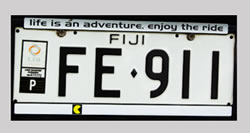My parents taught me a very valuable lesson before I was to attend college. They got me a job with my mom’s employer, Green Giant, Inc., for the summer season — the busiest time of the year.

I joined dozens of other new workers at the graveyard shift — 11 pm to 5:30 am — to cut and trim broccoli spears for broccoli and cheese sauce in plastic packets. The boil-in-the-bag kind of food that Green Giant, Birds Eye and other big agra companies were known for. My first day of work, I was allowed one light blue plastic handled carbon steel knife, a regulation pair of thick rubber gloves and a plastic shower cap to keep my hair out of the food. I wore knee high rubber work boots and a clear plastic apron.
I was still a teenager. Sleep was important, not only for health but escape. Being up to work at the time you’re normally lights out took some time to get used to. Then there was the monotony of seeing the same thing — broccoli — coming at you in an endless, relentless stream.
You were paid by the hour and your work product was graded. After two long hours we were given a break. It was necessary. The combined exhaustion of the late shift, the monotony and the repetition was enough to make you hallucinate. And that was not the worst thing that could happen to you while working a graveyard line shift.
At first, mom and I worked the same time, but three days into my schedule, her seniority on the floor allowed her an earlier shift. I was happy for her; she would get some rest. I, on the other hand, would have to stay on the graveyard shift. It was then that one of the more senior women, a middle-aged woman from Arkansas, came over during lunch break and showed me the ropes of working in the jolly Green Giant machine.
The giant vats used to make the cheese sauce never employed real cheese. Fifty-pound bags of orange powdered product were poured in to these vats and blended with an emulsifier that delivered cheese “product” into each of our little broccoli bags. You had to be strong to heft the loaded bags into the vats, or you would topple into the machine.
Next we snuck into the cauliflower section of the factory. It was dormant in summer. Cauliflower season hadn’t begun. There were rows of what looked like stainless steel basket steamers splayed open. But these were trimmers, not steamers. The folding steel plackets were razor sharp blades that spun to trim the excess greenery from the cauliflower heads.
The workers would place the crown of the cauliflower head onto a spike dead center in the circular trimming machine, and the blades would activate with the pressure, whirling and cutting until each cauliflower head was “uniform.” It was not uncommon for workers to lose a finger or a portion of a hand while working the cauliflower shift.
For the two weeks I worked there the summer of 1973, I watched the plant safety sign each night, with the small OSHA logo on the bottom right margin. I always checked to see how many days had passed at the plant since the last accident. As a laborer, you need to be aware of those things — especially nowadays, when some companies don’t report accidents or fatalities, or even do anything about them unless worker or union pressure comes down hard. Now, more so than before, even that won’t prevent labor abuse.

BALANCE, our exciting 12-sign Midyear Reading on forthcoming astrology, including Jupiter in Libra, is available for instant access. Get all 12 signs here, or choose your individual signs.
Fortunately, Green Giant was a Teamsters shop. Mom was a standing member. The union pressured the company to abandon the cauliflower trimming machines. By the time I landed my first big management job in the public sector, Green Giant sold the plant to another company, which ran it for another twenty years until the property was sold again and the plant converted to do something else. I’ve stopped checking to see what has happened there since.
Working there when it was a food factory was one of the hardest and most important things I have ever had to do, which was exactly the reason my parents wanted me to work there that summer in the first place, and for which I am forever grateful. They wanted to make sure I would apply myself to my studies more, rather than dream away my life working in a factory in a small town without a future. Lesson learned.
I also came to appreciate the workers, including my parents, who have had no choice but to do those jobs that most people would never dream of or want to do. For a very short time I was one. From the agricultural fields to the kitchens, in plants and factories around the planet, human toil still provides comfort and sustenance to those comfortable enough to afford it, and profit to those rapacious enough to exploit it.
For those whose life is hard labor, and who continue to do the work most of us refuse to do, Labor Day commemorates the hard-fought rights won to protect workers who are part of the widest and lowest layer of the pyramid upon which the world rests.
To celebrate this holiday beyond the barbecue and the beach and the last days of summer, the meaning and the power of the labor performed by workers who make our lives easier needs to be appreciated, remembered, and never taken for granted. By their life, breath, skin and blood, they make our lives look easy by comparison.

